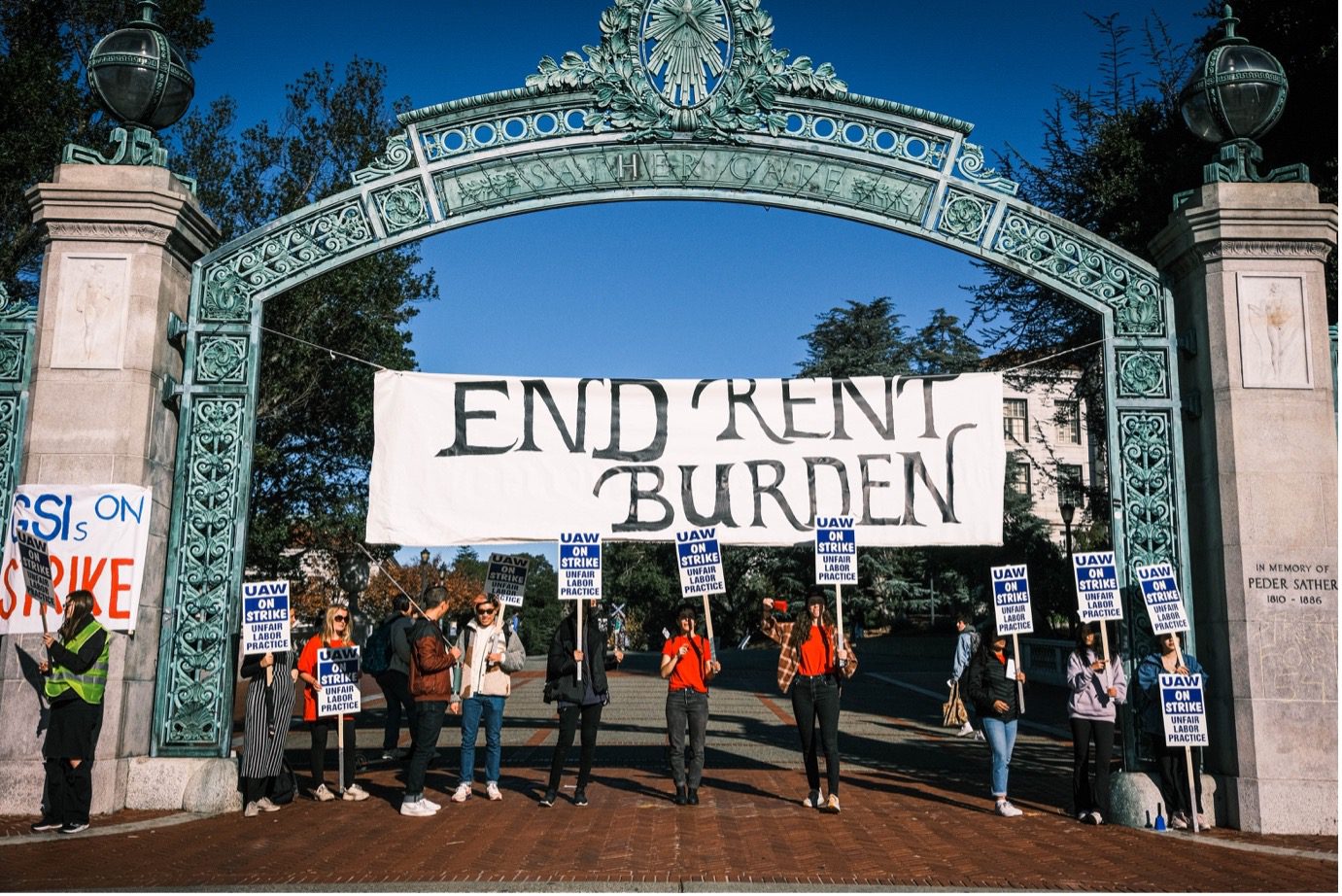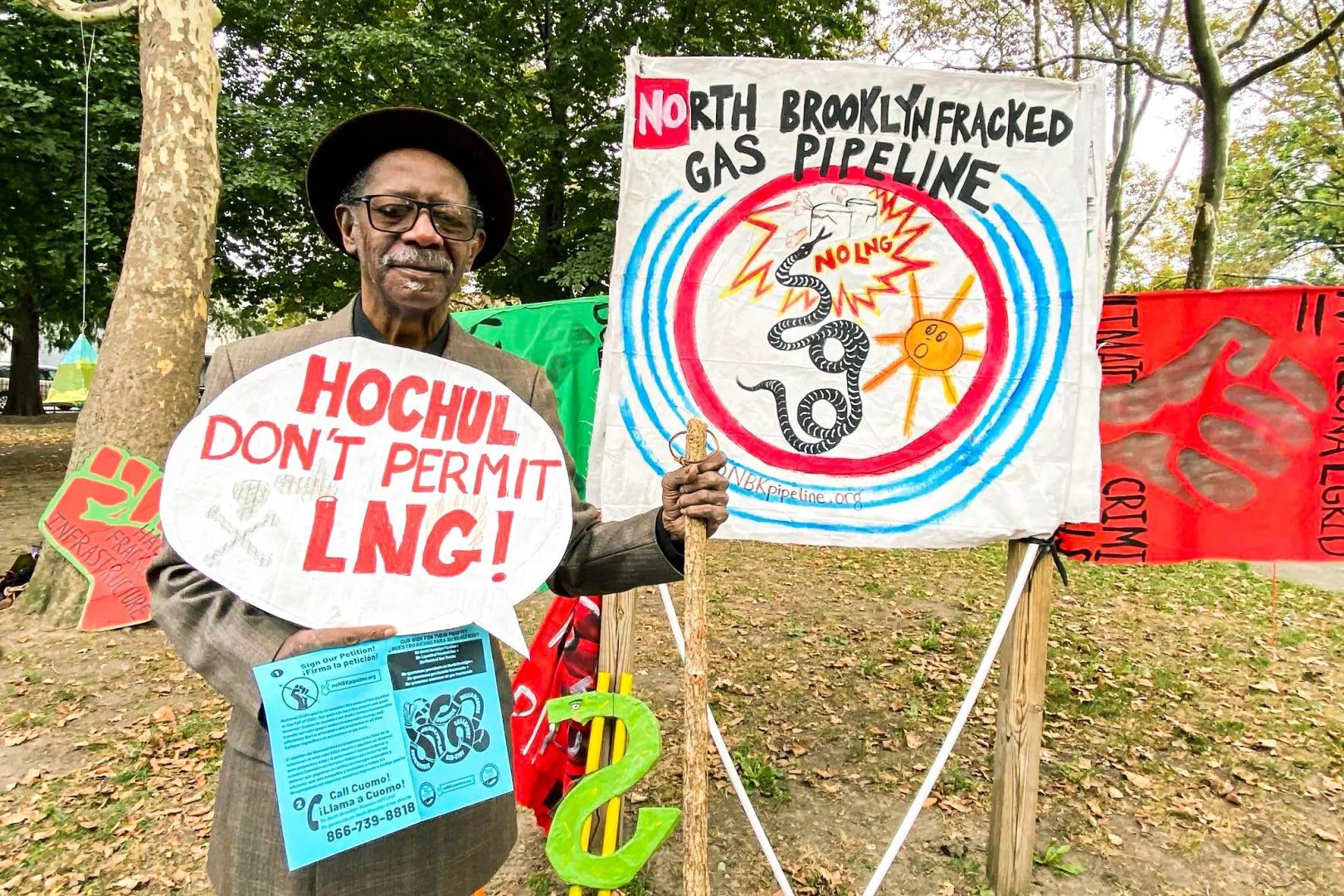This article is part of the Under the Lens series

Photo by Flickr user Riccardo Guerrini, CC BY-NC-SA 2.0
In 2019, the tenants at Stonehouse Square Apartments in northeast Minneapolis discovered that their housing was at risk. The owner intended to sell the complex, and the prospective buyer had no obligation to renew the complex’s Section 8 Project-Based Rental Assistance contract. Without the Section 8 contract in place, the new owner could eliminate the affordable rents at the complex, forcing many of the residents to move.
When news of the owner’s plans spread to the tenants, they sprang into action, reaching out to the tenant advocacy organization HOME Line to help them organize. With the support of HOME Line, the residents put up flyers around the complex, knocked on neighbors’ doors, and formed a tenants’ association, the Stonehouse Square Apartments Tenants’ Association. While initial meetings with the building owner were discouraging, the tenants, working through their new tenants’ association, were eventually able to persuade the owner to sell the property to a nonprofit affordable housing provider committed to preserving the affordable rents at the property.
Across the country, the type of organizing that occurred at Stonehouse Square Apartments plays a critical role in increasing the power of tenants to resolve conflicts with their landlords. Tenants organize for a variety of reasons, from combating displacement pressures and landlord harassment to obtaining improvements to their buildings’ conditions. But wins from tenant organizing are often elusive when there are no legal protections for organizing in the first place.
The Law Matters
Although many factors shape the strength of organizing movements, the law matters in facilitating organizing—whether the organizing is by employees, tenants, or others facing significant power imbalances absent collective mobilization.
The tenants’ ability to organize effectively at Stonehouse was enabled by a range of federal legal protections that were available to the tenants because of the property’s Section 8 contract. In the absence of comprehensive laws that protect tenant organizing activities, landlords of properties that don’t have similar federal subsidies have many avenues to thwart activities like those engaged in by the tenants at Stonehouse. Landlords can retaliate against tenants who organize by raising their rents, harassing them, or refusing to renew their leases, among other types of mistreatment. Landlords can threaten undocumented tenant organizers with calls to U.S. Immigration and Customs Enforcement. And landlords can threaten organizers who don’t live on the property with arrest for trespass when they canvass on the property.
Robust organizing activities have therefore long been largely concentrated in HUD-assisted properties, like the Stonehouse Square Apartments, where federal law provides a multifaceted, expansive set of protections that facilitate organizing by tenants. Owners who violate these organizing protections can be liable for sanctions, including being barred from participating in federal programs in the future. The vast majority of low-income tenants today, however, reside in non-HUD-assisted housing and in jurisdictions that offer very limited legal support for tenant organizing.
In properties without legal protections to organize, tenant organizers report that it is much harder to successfully engage in organizing activities. We spoke to Ivory Taylor, a former organizer with HOME Line in Minnesota, who worked in both privately funded complexes and HUD-assisted properties in Minnesota. She noted that it is a “different world” in helping tenants organize at HUD-assisted properties compared to the other rental properties, given the differences in legal protections. An organizer in Texas similarly reported that organizing efforts to address substandard living conditions and landlord abuses are much more challenging in private complexes given the lack of the robust federal protections for organizing activities.
A Comprehensive Set of Legal Reforms to Protect Tenant Organizing
Recognizing the need for stronger organizing protections in non-HUD-assisted properties, several state and local jurisdictions, such as San Francisco, Austin, Seattle, California, Washington, D.C., and New York have adopted their own laws to support tenant organizing activities. Drawing from the laws in these jurisdictions and others, we offer here our recommendations for a comprehensive set of legal reforms that states and cities should adopt to help tenants advocate collectively for fairer treatment from their landlords and for access to safe, affordable homes.
- Provide tenants with a broad right to organize
Providing tenants with an affirmative right to engage in a broad range of organizing activities, free of landlord interference, is an essential legal reform for enabling tenant organizing. For maximum effectiveness, similar to federal protections at HUD-assisted properties, local and state laws should enumerate the specific types of organizing activities that tenants have the right to engage in.
Ideally, the law should explicitly protect a tenant’s ability to canvass other tenants regarding issues at that property and the right to hold meetings at a reasonable time in the tenants’ units or in the property’s common areas. When laws do not specify which activities are protected, tenant organizers report that landlords can find creative ways to characterize organizing activities as lease violations.
At the state level, the states that provide tenants with an explicit right to organize include New York and California, although these laws are much more limited in scope than the tenant organizing rights at HUD-assisted properties. A few states, including Florida, Minnesota, and Oregon, provide tenants in mobile home parks with canvassing rights but do not extend these rights to tenants in apartments. At a local level, Washington, D.C., East Palo Alto, Seattle, and, most recently, San Francisco and Austin have adopted laws providing tenants with a broad right to organize and enumerating protected activities.
- Protect tenants who organize from retaliation
Thirty-five states have laws that protect tenants from retaliation from their landlords for participating in tenant organizing activities. Most of these laws, however, are limited in scope and effectiveness and need to be reformed to better support tenant organizing.
State retaliation-protection laws with the broadest protections cover any organizing activities as long as they are not illegal under state law. Ideally such laws would also broadly prohibit any retaliatory actions by a landlord while also including specific examples of the range of retaliatory actions barred, including filing or threatening to file for eviction, decreasing services, lease non-renewals, and increasing the tenant’s rent.
The strongest laws protecting tenants from landlord retaliation put the burden on the landlord to prove that they have not retaliated against a tenant if the landlord takes certain actions after the tenant engages in tenant organizing activities. They also create a high burden of proof for landlords to overcome the presumption of retaliation. In Massachusetts, for example, a strong rebuttable presumption exists for six months after the tenant has participated in a tenant organizing activity.
Finally, a retaliation law should include strong penalties for landlords who violate the law. Chicago’s retaliation ordinance, for example, allows a tenant to recover up to two months’ rent or twice the damages sustained, if higher, along with reasonable attorneys’ fees.
- Adopt good cause eviction protections
Several states and local jurisdictions have adopted good cause, or just cause, eviction laws, which limit the grounds upon which a landlord can refuse to renew a tenant’s lease or can evict a tenant. Good cause eviction laws provide an additional important layer of protection from landlords who seek to retaliate against tenants for engaging in organizing activities, by requiring a landlord to establish that a major lease violation occurred as the ground for the lease nonrenewal.
While robust, specific anti-retaliation laws are important to protect tenant organizing, without a good cause eviction law also in place, landlords have wide latitude in deciding when to not renew a tenant’s lease or to evict a tenant, and so can use minor complaints as a pretext for a lease nonrenewal when retaliating against tenants who organize. In other words, without good cause protections, landlords still have options for disrupting and deterring organizing activities.
[RELATED ARTICLE: Albany’s Good-Cause Eviction Law Worked—Before the Courts Blocked It.]
States with good cause protections include California, New Hampshire, New Jersey, Oregon, and Washington. Local jurisdictions with just cause laws include Seattle, Philadelphia, San Francisco, Marin County, Oakland, and Washington, D.C.
A landlord’s grounds for good cause to not renew a tenant’s lease or evict a tenant vary by jurisdiction. In New Jersey, for example, good cause grounds include nonpayment of rent, disorderly conduct that disrupts the peace and quiet of neighbors, and substantial violations of the landlord’s written rules and regulations. In D.C., good cause grounds include the tenant’s violation of the lease if the tenant fails to correct the violation within 30 days of receiving notice.
- Protect third-party organizers
A comprehensive tenant organizing law should also address the rights of trained organizers who reside off the property to support tenant organizing activities. Since the advent of the modern tenant organizing movement, third-party organizers have played a critical role in helping tenants with canvassing, trainings, and other organizing activities. In the absence of protections, third-party organizers are much more vulnerable to being barred from a property or facing arrest for criminal trespass.
[RELATED ARTICLE: When a Problematic Landlord is a Nonprofit]
In crafting rights for third-party organizers, a jurisdiction must determine the conditions upon which a third-party organizer can enter the property. The few jurisdictions that explicitly protect third-party organizers take a range of approaches. Under Austin’s new right-to-organize ordinance, a tenant has the right to invite a third-party organizer to assist with organizing activities at the property. In Seattle, the third-party organizer must be accompanied by a tenant. In Washington, D.C., and HUD-assisted properties, whether a third-party organizer must be accompanied by a tenant to canvass depends on whether the complex has a consistently enforced policy barring all outside canvassing.
- Require landlords to meet and confer with tenant organizations
A fifth legal mechanism for facilitating tenant organizing rights is a “meet and confer” requirement. Drawing from labor law principles, a meet and confer law requires landlords to meet and negotiate in good faith with the tenant association for the property regarding the landlord’s policies and rents.
In 2022, San Francisco adopted an expansive tenant organizing ordinance that includes a meet and confer provision. Under the ordinance, a tenant association may be established for a building with a petition signed by tenants representing at least 50 percent of the occupied units in the building. The ordinance requires the landlord and the official tenant association to confer with each other “in good faith regarding housing conditions, community life, landlord-tenant relations, and other issues of common interest or concern.” Upon written request of the tenant association, the landlord or a landlord representative must attend at least one tenant association meeting each quarter.
- Provide enforcement mechanisms to deter landlord noncompliance.
To be effective, right-to-organize laws should provide sufficient penalties and enforcement mechanisms to deter a landlord’s noncompliance. In HUD-assisted properties, tenants can complain to HUD for violations of their tenant organizing rights, which can result in sanctions by HUD, including restricting the property’s ability to participate in federal programs in the future. (Even with these protections, though, enforcement has been weak.) In D.C., owners who violate tenants’ organizing rights can be fined up to $10,000 for each violation and be enjoined to stop future violations. The landlord’s rental business license or registration may also be suspended or revoked for a period of time. The law should also bar lease agreements from waiving a tenant’s right to participate in organizing activities.
Where the law protects tenant organizing activities, several tenant organizers also mentioned the importance of training law enforcement officers on the legal protections, as police are often unfamiliar with the rights that tenants have to organize. As an example, the New York Attorney General recently issued guidance to law enforcement officials in the state on tenants’ legal rights to organize.
Our final recommendation is for cities and states to allocate funding for tenant organizations and tenant organizing activities. The federal government has a long history of funding tenant organizing in HUD-assisted properties, through programs such as VISTA (Volunteers in Service to America) and CETA (Comprehensive Employment and Training Act), although funding has waxed and waned over the years. At the local level, Washington, D.C., has a specific agency dedicated to protecting the city’s tenants, the Office of the Tenant Advocate, whose education and outreach team assists tenants in forming tenant associations. And the city of Austin uses part of its code enforcement budget to fund tenant education and tenant organizing activities.
These legal protections for tenant organizing are not exhaustive and are by no means the only ingredients for a successful tenant organizing campaign. But they make a difference. With the law on their side, tenants have greater power to address the more immediate problems at their apartment complexes—as well as build a larger movement that addresses the urgent need for more safe, secure, and affordable housing in our country.
This article includes excerpts from an article previously published in the American Bar Association’s Journal of Affordable Housing & Community Development Law.





To these important suggestions I would recommend applying New York State’s Multiple Dwelling Law Section 230, i.e. tenants have the right to use common areas of the building to conduct meetings. And yes, local authorities have to be educated on this as in New York City there was the anomaly of Tenant Organizer Luiana Robinson being arrested in the late 70’s by the police for trespass when she was invited by tenants to speak at a building lobby meeting. This embarrassment caused the precinct houses to respond better to such considerations.